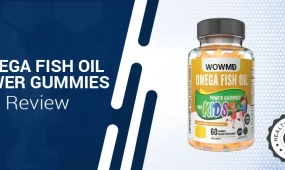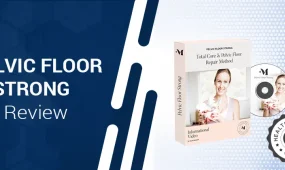“Red wine is healthy!” is a popular claim frequently repeated in headlines across various forms of media (and music to many of our ears).
But, according to research, is red wine actually good for us? Read on to find out.
The History of Wine As Medicine
Ancient Egyptians used wine as medicine dating back as far as 3150 BC.
Wine and The French Paradox
In the late 80s, the term ‘French Paradox’ began to be used to describe a peculiar finding in France.
It seemed that while France had one of the lowest numbers of heart disease-related deaths of the countries studied, they also consumed the highest intakes of saturated fat [2].
It was theorized that the moderate intake of red wine in the region was responsible for this paradox. However, in later years, this theory was criticized.
The research did not account for several factors including dietary intake (the French had a higher consumption of vegetables), other lifestyle behaviors, reporting errors, and length of time since the country had been consuming high amounts of saturated fat [3] [4] [5].
Red Wine and Heart Disease
Most of the evidence supporting consumption of red wine has been surrounding its potential to prevent heart disease [6] [7].
Heart disease is one of the leading causes of death in developed countries[8].
Some risk factors for heart disease include:
- smoking
- high blood pressure
- diabetes
- obesity
- inactivity
- and genetics [8].
Moderate consumption of alcohol has been associated with a decreased risk of heart disease [9].
When populations with moderate consumption of alcohol have been compared to populations with no alcohol consumption, the risk of dying from heart disease is decreased by 20 to 50% [9].
Specifically, light to moderate drinkers may have:
- higher HDL cholesterol (the ‘good’ cholesterol)
- lower reports of type 2 diabetes
- and less oxidative stress [8]
What Makes Wine Consumption Heart-Healthy?
Red wine has shown to be the most protective of heart disease, but for reasons that are still unclear [8].
Wine consists of water, sugars, ethanol, acids, and polyphenols (flavonoids and non-flavonoids) [2].
The polyphenol content (from grapes) may make wine superior to other alcoholic beverages in terms of heart health.
Increased flavonoid intake has been linked to decreased:
- atherosclerosis
- blood clots
- risk of dying from heart disease[2].
Multiple studies have found that flavonoids can:
- improve blood lipid levels
- reduce insulin resistance
- lower oxidative stress
- improve levels of LDL-cholesterol (the ‘bad’ cholesterol) [8].
Flavonoids can also be found in teas, herbs, spices, fruits, vegetables, and nuts [8].
Resveratrol and Red Wine
Non-flavonoids have been reviewed for their potential cardioprotective effects. Resveratrol has been studied in animal models as a potential supplement for cardiovascular health, including the prevention of stroke and heart failure [2].
However, when resveratrol supplements were tested in human clinical trials, the results appear to be opposite to that of the effect in mice.
The group who took a resveratrol supplement had less oxygen uptake and no improvements in cholesterol or triglyceride profiles, which were seen in the exercise-only group.
Is Red Wine Better Than White Wine?
In comparison to white wine, red wine has been found to have 10 times the polyphenol content [2] [12].
In addition, in terms of breast cancer, it appears that red wine contains phytochemicals that act as aromatase inhibitors, halting the conversion of androgen to estrogen, while white wine does not [13] [14].
Therefore, aromatase inhibitors of red wine could balance out the increased risk of breast cancer associated with consuming alcohol.
White wine may still have some potential benefit as it contains several antioxidants that are also found in olive oil [15].
How Much Red Wine is Healthy?
The answer to this question is going to be based on you as an individual. According to the American Heart Association, drinking in moderation is:
- 1-2 drinks a day for men
- 1 drink a day for women.
One drink in terms of wine works out to 4 ounces.
Why Drinking Alcohol Still Requires CAUTION?
Alcohol is an avoidable risk factor for several chronic diseases including alcoholic liver disease, alcohol use disorder, and pancreatitis [16] [2].
NOTE: Alcohol should also be avoided during pregnancy.
Alcohol and Cancer
In terms of breast cancer, alcohol consumption is a known risk factor [17].
Alcohol and Mood
Alcohol also has an impact on our mood by acting on serotonin and GABA receptors.
This explains why alcohol can cause drowsiness and may result with an easier time falling asleep, but a decreased quality of sleep [19][20].
Also, a causal link has been found between alcohol use disorder and depression [22]. Anyone suffering from either of these conditions is at twice the risk of developing the other. Depression affects around 9% of adult Americans, and is more common in women (ADAA).
The Bottom Line on Red Wine
In October of 2019, a review in Molecules was published which discussed all studies on red wine and heart disease reported over the past ten years.
This review concluded that “A moderate intake of red wine may produce cardioprotective effects.”. They also added that more research is required to understand the mechanisms behind why red wine may boost heart health [8].
However, the negative impacts of alcohol on health need to be considered. So, it appears the jury is still out on this one.
Sources
Health Insiders relies on peer-reviewed studies, academic research institutions, and medical associations. We avoid using tertiary references. You can learn more about how we ensure our content is accurate and current by reading our editorial policy.
[1] Manring MM, Hawk A, Calhoun JH, Andersen RC. Treatment of war wounds: a historical review. Clin Orthop Relat Res. 2009 Aug;467(8):2168-91. doi: 10.1007/s11999-009-0738-5. Epub 2009 Feb 14. PMID: 19219516; PMCID: PMC2706344.
[2] Haseeb S, Alexander B, Baranchuk A. Wine and Cardiovascular Health: A Comprehensive Review. Circulation. 2017 Oct 10;136(15):1434-1448. doi: 10.1161/CIRCULATIONAHA.117.030387. PMID: 28993373.
[3] A Evans. The French paradox and other ecological fallacies. Int J Epidemiol. 2011 Dec;40(6):1486-9 https://academic.oup.com/ije/article/40/6/1486/801211
[4] Law M, Wald N. Why heart disease mortality is low in France: the time lag explanation. BMJ. 1999;318(7196):1471-1476. doi:10.1136/bmj.318.7196.1471
[5] Burr ML. Explaining the French paradox. J R Soc Health. 1995 Aug;115(4):217-9. doi: 10.1177/146642409511500404. PMID: 7562866.
[6] Liberale L, Bonaventura A, Montecucco F, Dallegri F, Carbone F. Impact of Red Wine Consumption on Cardiovascular Health. Curr Med Chem. 2019;26(19):3542-3566. doi: 10.2174/0929867324666170518100606. PMID: 28521683.
[7] Snopek L, Mlcek J, Sochorova L, Baron M, Hlavacova I, Jurikova T, Kizek R, Sedlackova E, Sochor J. Contribution of Red Wine Consumption to Human Health Protection. Molecules. 2018 Jul 11;23(7):1684. doi: 10.3390/molecules23071684. PMID: 29997312; PMCID: PMC6099584.
[8] Castaldo L, Narváez A, Izzo L, Graziani G, Gaspari A, Di Minno G, Ritieni A. Red Wine Consumption and Cardiovascular Health. Molecules. 2019 Jan;24(19):3626 https://www.mdpi.com/1420-3049/24/19/3626
[9] Teissedre PL, Stockley C, Boban M, Ruf JC, Alba MO, Gambert P, Flesh M. The effects of wine consumption on cardiovascular disease and associated risk factors: A narrative review. OENO One. 2018 Mar 29;52(1):67-79 https://oeno-one.eu/article/view/2129
[10] Roerecke M, Rehm J. Alcohol consumption, drinking patterns, and ischemic heart disease: a narrative review of meta-analyses and a systematic review and meta-analysis of the impact of heavy drinking occasions on risk for moderate drinkers. BMC Med. 2014 Oct 21;12:182. doi: 10.1186/s12916-014-0182-6. PMID: 25567363; PMCID: PMC4203905.
[11] Gliemann L, Schmidt JF, Olesen J, Biensø RS, Peronard SL, Grandjean SU, Mortensen SP, Nyberg M, Bangsbo J, Pilegaard H, Hellsten Y. Resveratrol blunts the positive effects of exercise training on cardiovascular health in aged men. J Physiol. 2013 Oct 15;591(20):5047-59. doi: 10.1113/jphysiol.2013.258061. Epub 2013 Jul 22. PMID: 23878368; PMCID: PMC3810808.
[12] Markoski MM, Garavaglia J, Oliveira A, Olivaes J, Marcadenti A. Molecular Properties of Red Wine Compounds and Cardiometabolic Benefits. Nutr Metab Insights. 2016 Aug 2;9:51-7. doi: 10.4137/NMI.S32909. PMID: 27512338; PMCID: PMC4973766.
[13] Eng ET, Williams D, Mandava U, Kirma N, Tekmal RR, Chen S. Anti-aromatase chemicals in red wine. Ann N Y Acad Sci. 2002 Jun;963:239-46. doi: 10.1111/j.1749-6632.2002.tb04116.x. PMID: 12095950.
[14] Shufelt C, Merz CN, Yang Y, Kirschner J, Polk D, Stanczyk F, Paul-Labrador M, Braunstein GD. Red versus white wine as a nutritional aromatase inhibitor in premenopausal women: a pilot study. J Womens Health (Larchmt). 2012 Mar;21(3):281-4. doi: 10.1089/jwh.2011.3001. Epub 2011 Dec 7. PMID: 22150098; PMCID: PMC3298670.
[15] Bertelli AA. Wine, research and cardiovascular disease: instructions for use. Atherosclerosis. 2007 Dec;195(2):242-7. doi: 10.1016/j.atherosclerosis.2007.04.006. Epub 2007 May 24. PMID: 17531243.
[16] Rehm J, Mathers C, Popova S, Thavorncharoensap M, Teerawattananon Y, Patra J. Global burden of disease and injury and economic cost attributable to alcohol use and alcohol-use disorders. Lancet. 2009 Jun 27;373(9682):2223-33. doi: 10.1016/S0140-6736(09)60746-7. PMID: 19560604.
[17] Chen WY, Rosner B, Hankinson SE, Colditz GA, Willett WC. Moderate alcohol consumption during adult life, drinking patterns, and breast cancer risk. JAMA. 2011 Nov 2;306(17):1884-90. doi: 10.1001/jama.2011.1590. PMID: 22045766; PMCID: PMC3292347.
[18] Hydes TJ, Burton R, Inskip H, Bellis MA, Sheron N. A comparison of gender-linked population cancer risks between alcohol and tobacco: how many cigarettes are there in a bottle of wine?. BMC public health. 2019 Dec;19(1):316. https://bmcpublichealth.biomedcentral.com/articles/10.1186/s12889-019-6576-9
[19] Stone BM. Sleep and low doses of alcohol. Electroencephalogr Clin Neurophysiol. 1980 Jun;48(6):706-9. doi: 10.1016/0013-4694(80)90427-7. PMID: 6155259.
[20] Colrain IM, Nicholas CL, Baker FC. Alcohol and the sleeping brain. Handb Clin Neurol. 2014;125:415-431. doi:10.1016/B978-0-444-62619-6.00024-0
[21] Marsh B, Carlyle M, Carter E, Hughes P, McGahey S, Lawn W, Stevens T, McAndrew A, Morgan CJ. Shyness, alcohol use disorders and 'hangxiety': A naturalistic study of social drinkers. Personality and Individual Differences. 2019 Mar 1;139:13-8. https://iogt.org/reports/shyness-alcohol-use-disorders-and-hangxiety/
[22] Markoski MM, Garavaglia J, Oliveira A, Olivaes J, Marcadenti A. Molecular Properties of Red Wine Compounds and Cardiometabolic Benefits. Nutr Metab Insights. 2016 Aug 2;9:51-7. doi: 10.4137/NMI.S32909. PMID: 27512338; PMCID: PMC4973766.







 This article changed my life!
This article changed my life! This article was informative.
This article was informative. I have a medical question.
I have a medical question. Ask a Question
Ask a Question
 This article contains incorrect information.
This article contains incorrect information. This article doesn’t have the information I’m looking for.
This article doesn’t have the information I’m looking for.